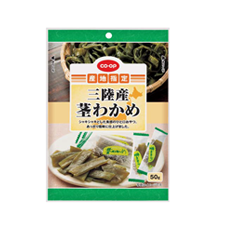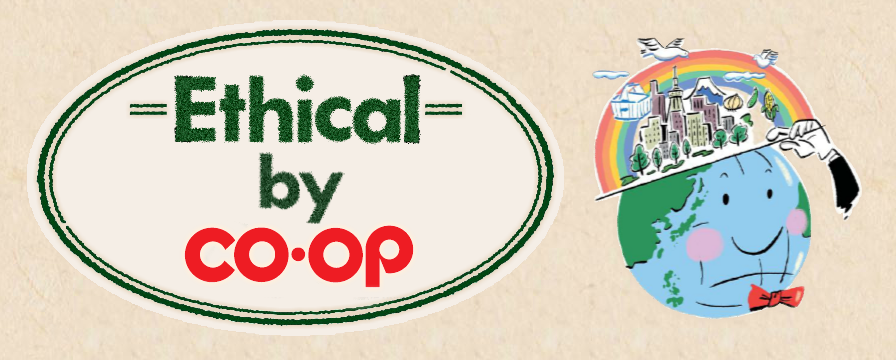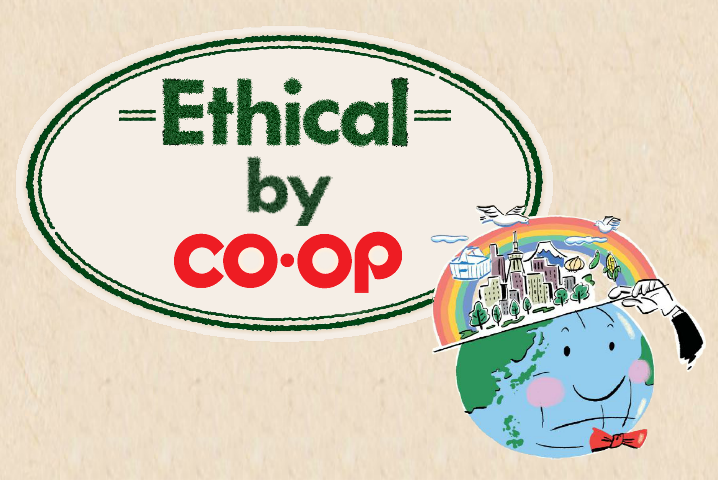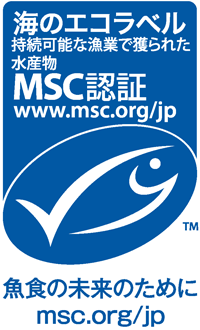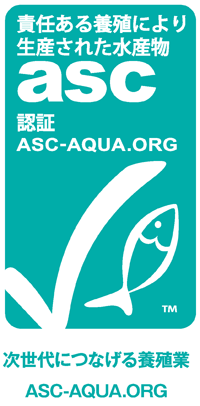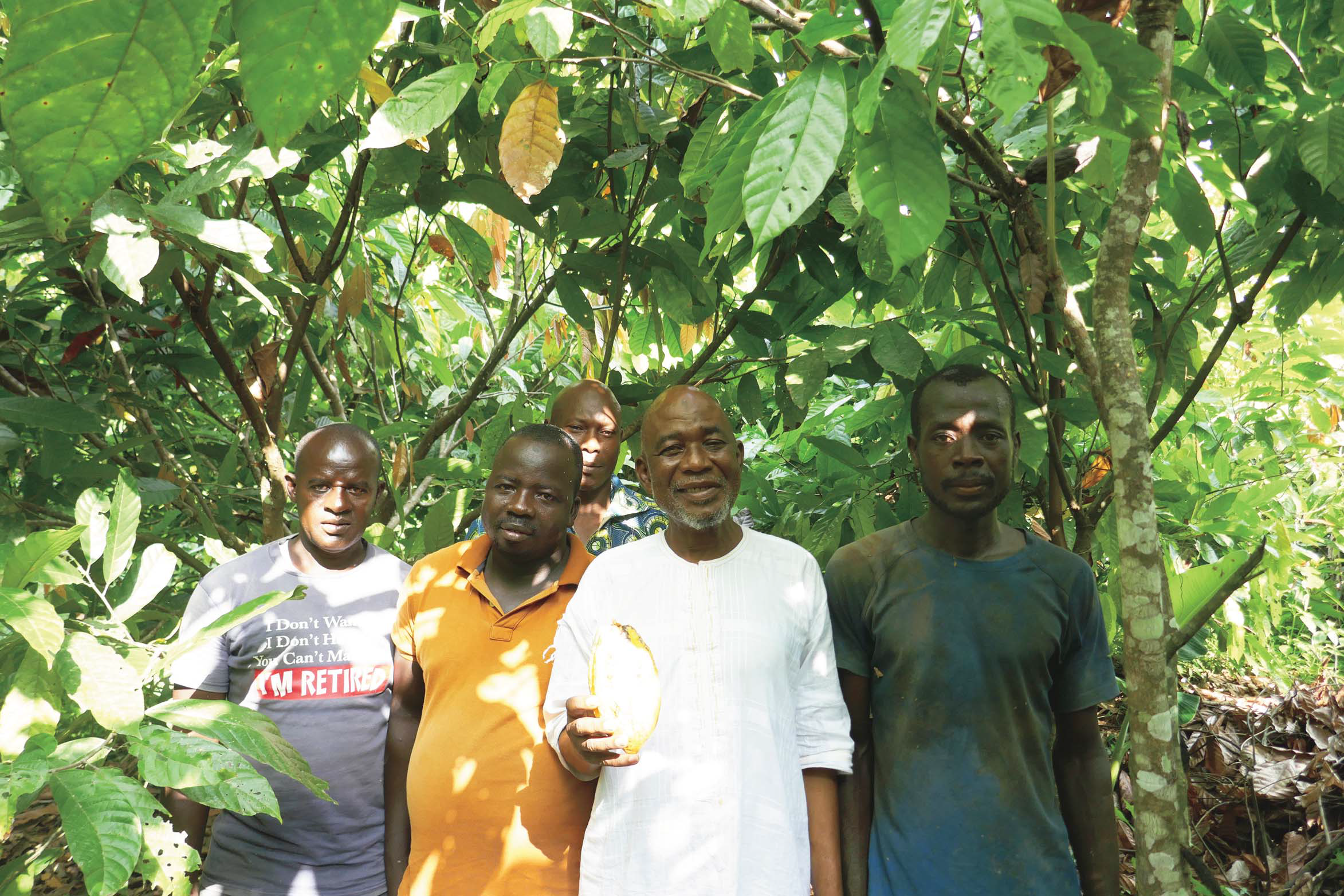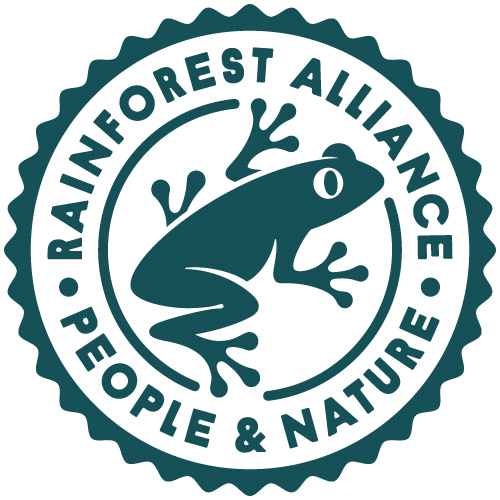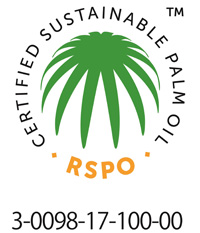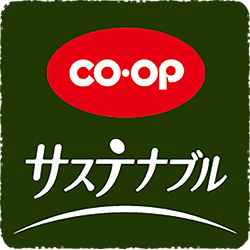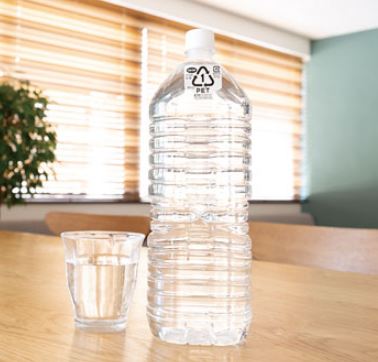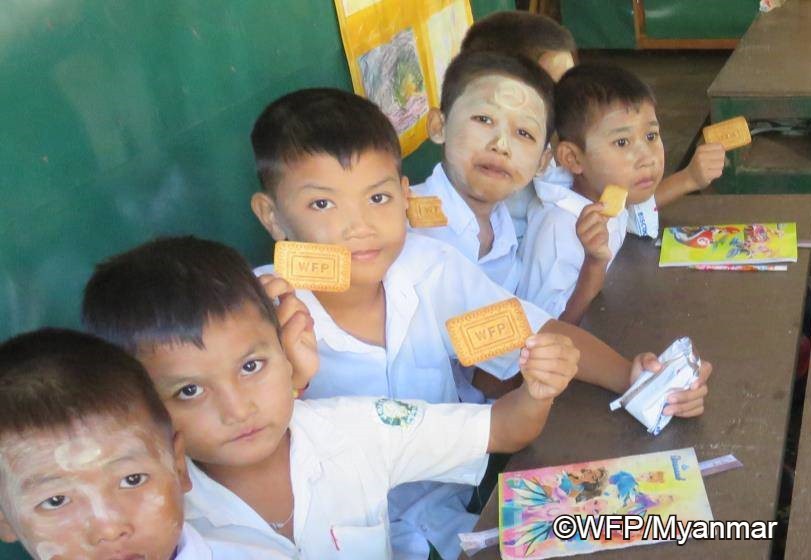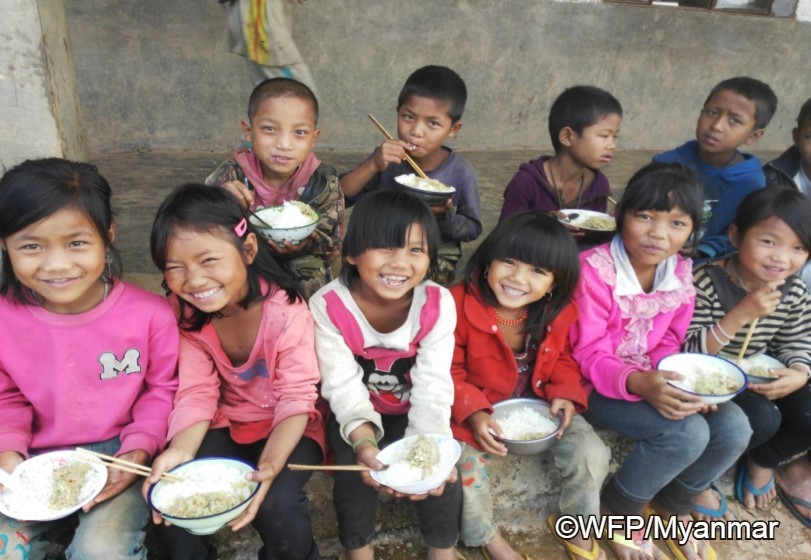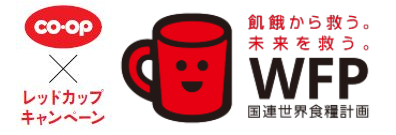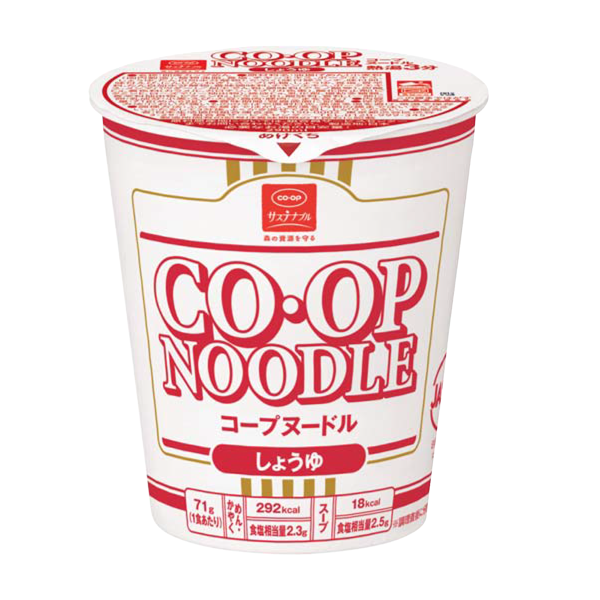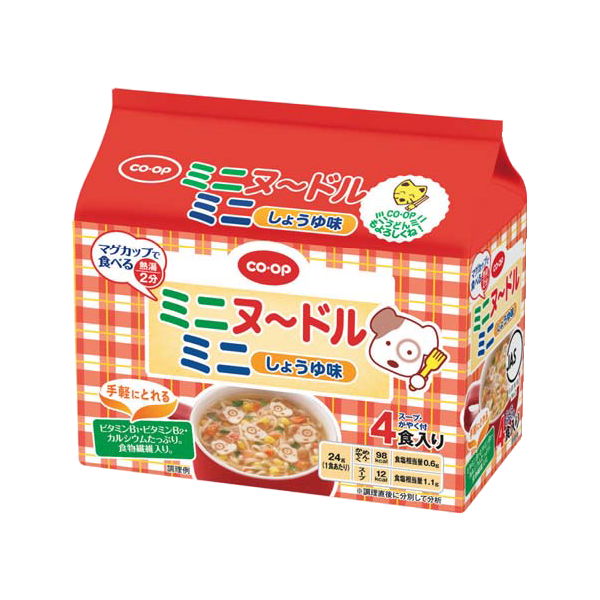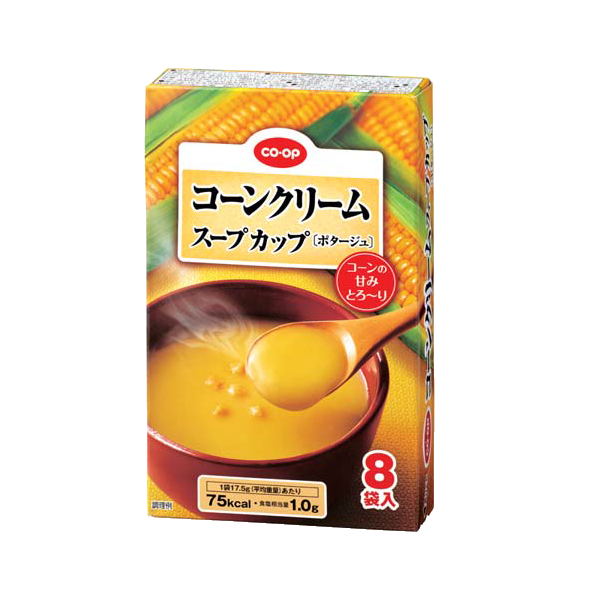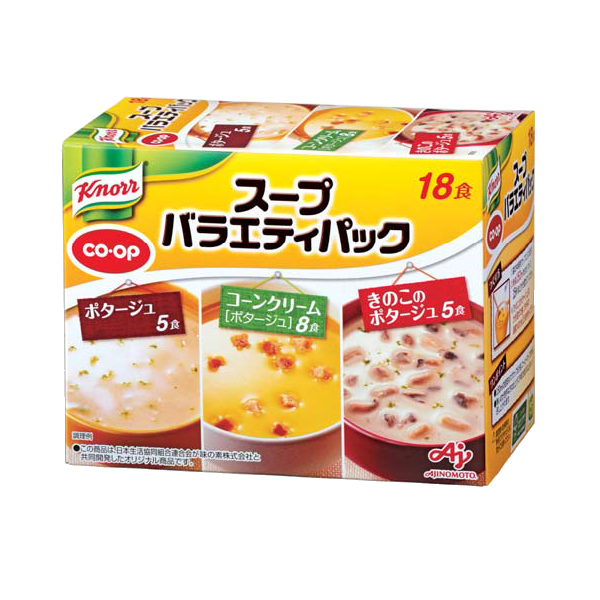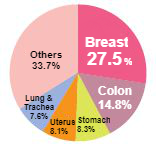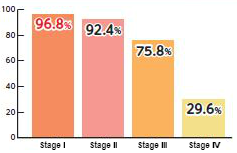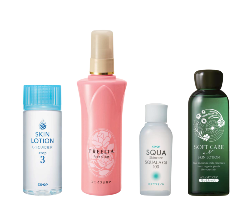Our environmental activities through CO·OP Brand Products
We approach environmental issues through CO·OP Brand Products from various perspectives such as the global warming, waste problems, and resource problems.
To conserve marine resources
We expand the use of marine resources produced by sustainable fishing and responsible aquaculture practices.
The global marine fisheries catches continue to increase with about 30% of fish stocks overfished and about 60% maximally sustainably fished. Besides, a growing number of farmed seafood is produced every year. The aquaculture industry affects the ocean and surrounding environment, and the natural fish resources used as bait, and it can also raise social issues such as inadequate working conditions for people involved in the industry.
The State of World Fisheries and Aquaculture
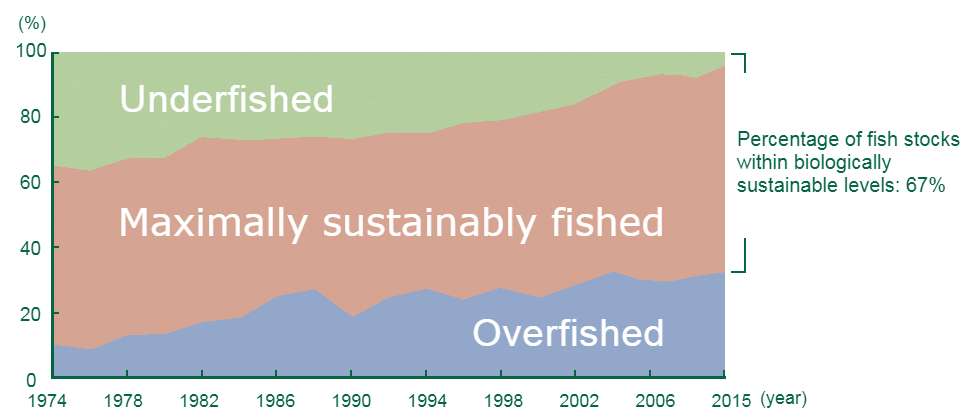
*This graph is made based on the Fisheries Agency website on the FAO’s State of World Fisheries and Aquaculture 2018.
The State of World Fisheries and Aquaculture
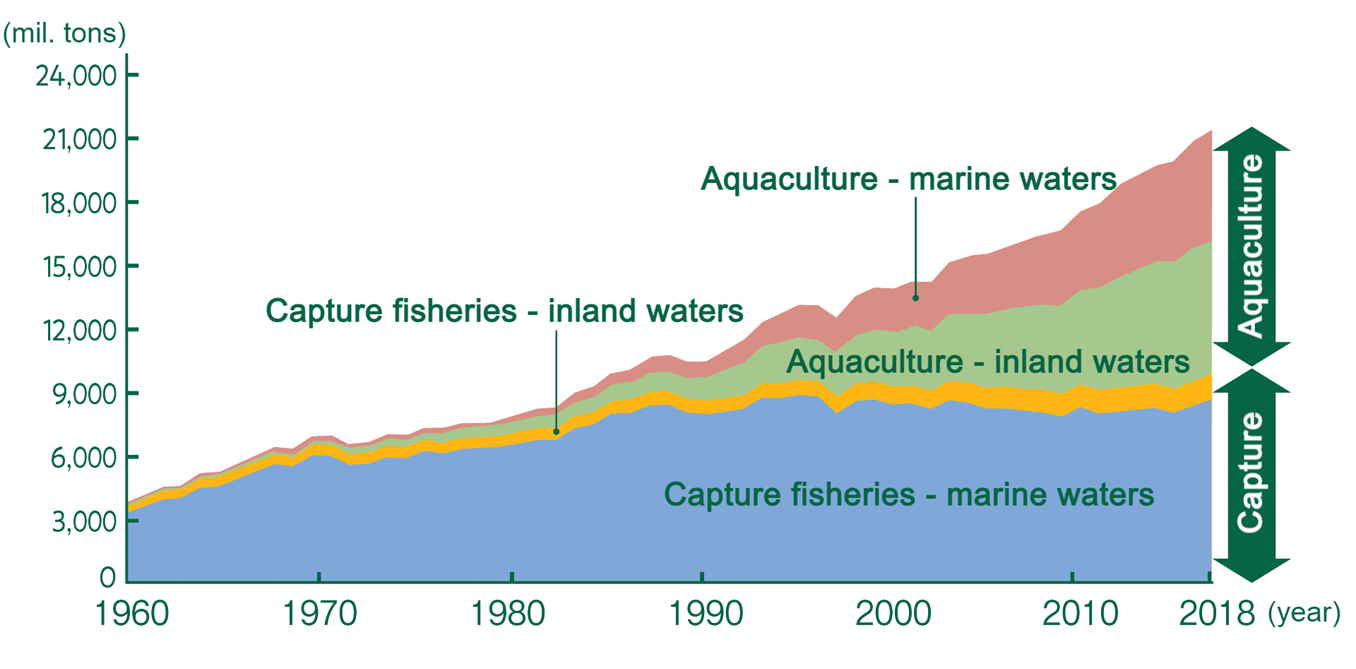
*This graph is made based on the Fisheries Agency website on the FAO’s Fishstat (Capture Production, Aquaculture Production) and statistics by Ministry of Agriculture, Forestry and Fisheries.
We actively develop and distribute MSC, ASC, or BAP certified products. Purchasing goods with these labels will lead to the use of sustainable and well-managed marine resources. JCCU aims to raise the sales of ecolabeled seafood products such as MSC and ASC certified products in the CO·OP Brand fishery products to more than 20% by early 2025 and to more than 30% by 2030. Also, on July 25, 2018, JCCU joined the GSSI Global Partnership as a Funding Partner, becoming the first cooperative to join.
CO·OP Brand Products certified
(example)
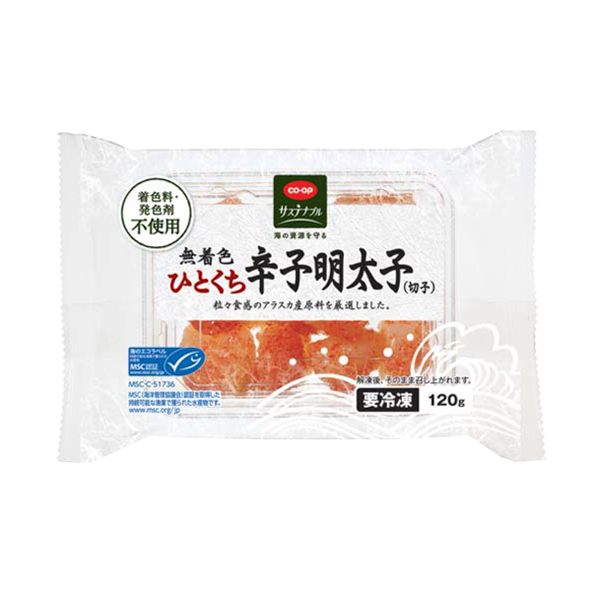
CO·OP Seasoned Cod Roe
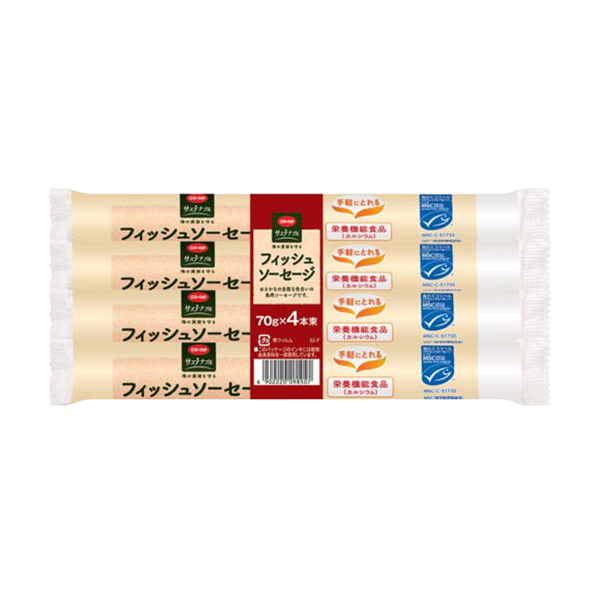
CO·OP Fish Sausage
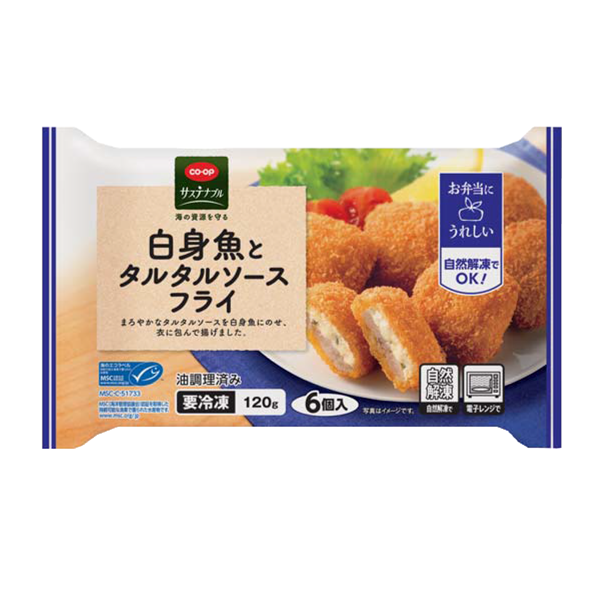
CO·OP Fried Fish
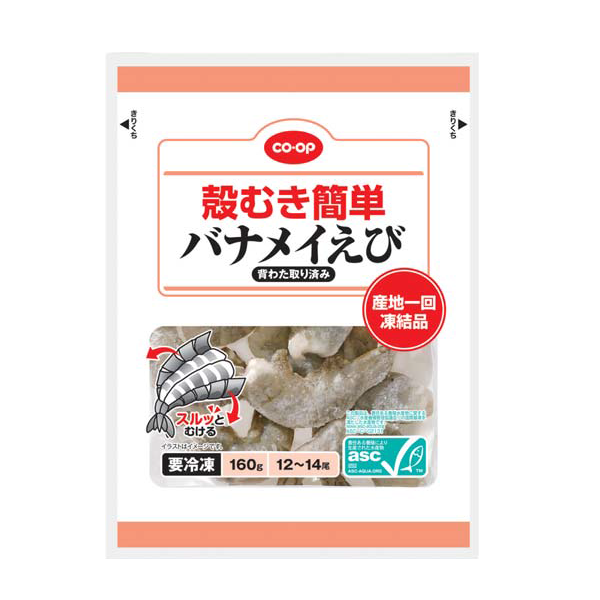
CO·OP White Leg Shrimp
What is MSC?
The Marine Stewardship Council is an international non-profit organization founded in 1997. Its aim is to protect oceans and fish stocks for the future by promoting well-managed and sustainable fisheries through certification and ecolabelling program.
What is ASC?
The Aquaculture Stewardship Council is an international non-profit organization founded in 2010. Its aim is to promote environmentally and socially responsible aquaculture for the future generation.
What is BAP?
Best Aquaculture Practices (BAP) is a seafood specific certification program that addresses the four key areas of sustainability-environmental, social, food safety, and animal health & welfare-at each step of the aquaculture production chain.
To protect the natural environment and support people working in forests
We aim to protect the ecosystem of forests and improve the labor environment.
In cacao plantations, the forests have been cut down for intensive cacao cultivation, and habitats for wildlife have been destroyed. Pesticides can also pollute land, rivers, and waterways and pose threats to people’s health.
We actively develop and distribute Rainforest Alliance certified products. Purchasing an item with Rainforest Alliance label leads to the encouragement of sustainable agriculture. We will keep increasing the number of items which are certified by Rainforest Alliance.
CO·OP Brand Products certified
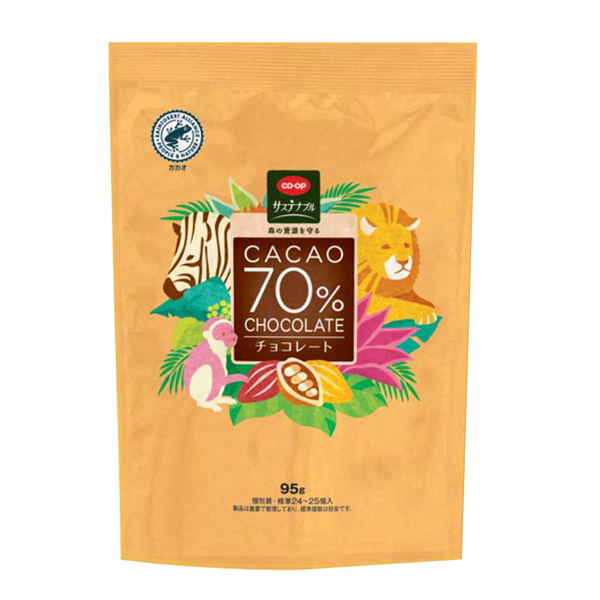
CO·OP Chocolate
Cacao 70%
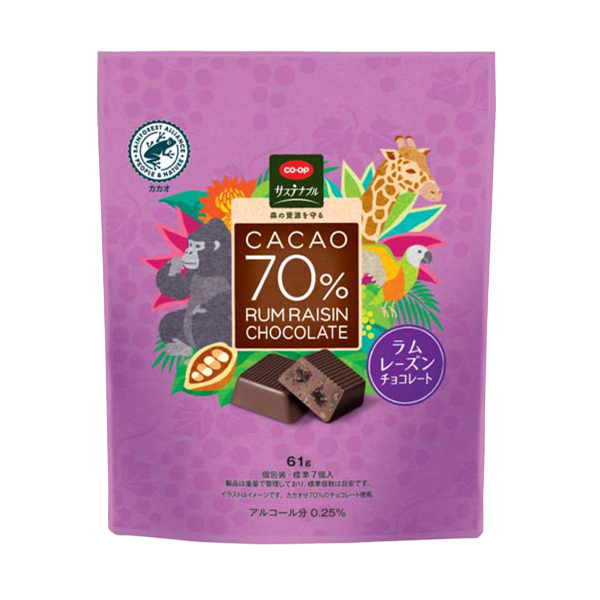
CO·OP Chocolate
with Rum-soake
Raisins
Cacao 70%
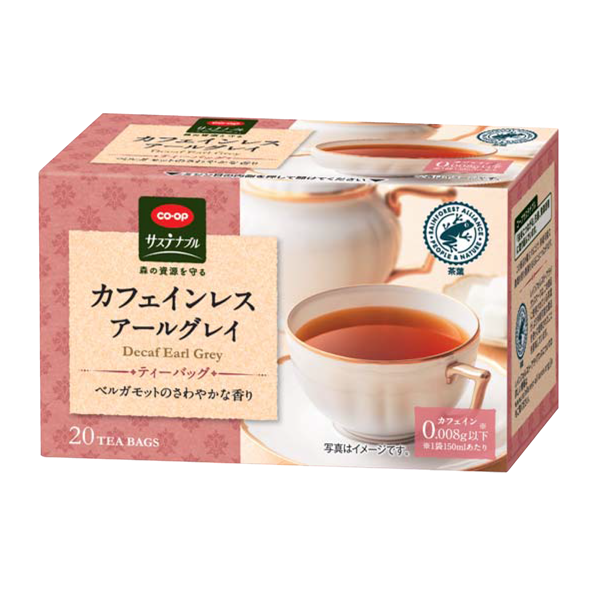
CO·OP Decaffeinated Tea
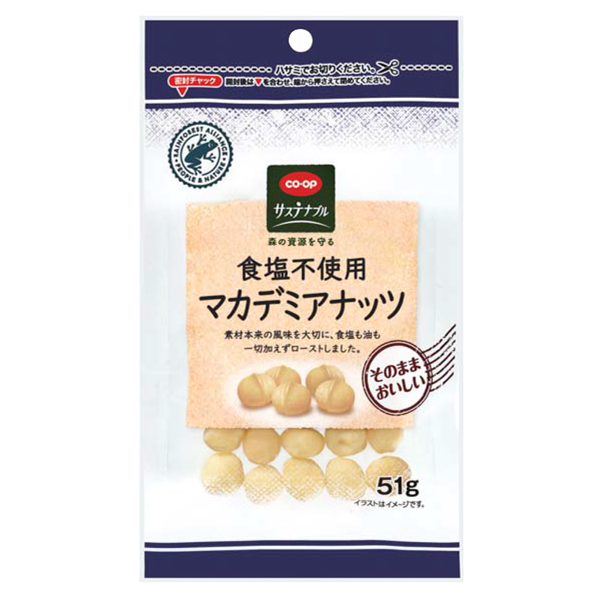
CO·OP Macadamia Nuts
What is Rainforest Alliance?
The Rainforest Alliance is an international non-profit organization working at the intersection of business, agriculture, and forests. They aim to create a better future for people and nature by making responsible business the new normal.
What the Rainforest Alliance CertifiedTM Seal Means

-
Farms are certified by Rainforest Alliance Sustainable Agriculture Standard.
-
Products are identified and separated from non-certified and non-controlled material by the Chain of Custody(CoC) Certification.
-
You can learn more about Rainforest Alliance here.
To protect forest resources
We help to protect the forests as well as people and creatures that live in them.
Japan ranks third in the world in annual paper production and consumption. The annual consumption of paper per capita amounts to about 210kg. Most of those raw materials are wood imported from abroad. Deforestation is accelerating rapidly around the world, and it is estimated that one football field of natural forest is being lost every 3.5 seconds.
We contribute to protecting forest resources through CO·OP Brand Products with FSC® label.
(example)
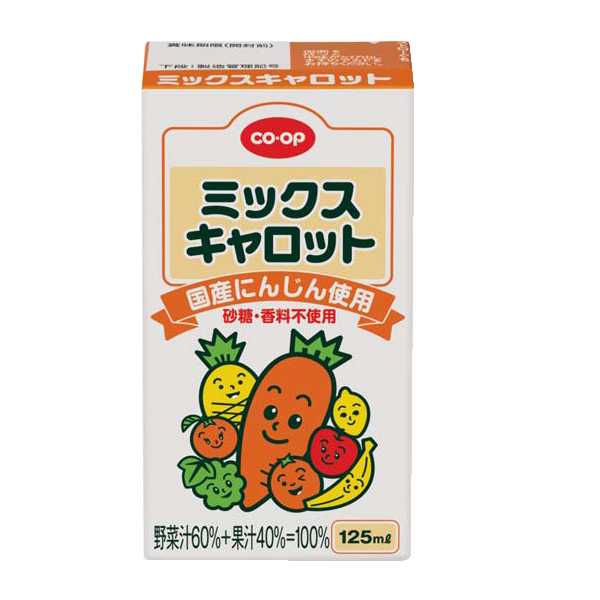
CO·OP Mixed Carrot Juice
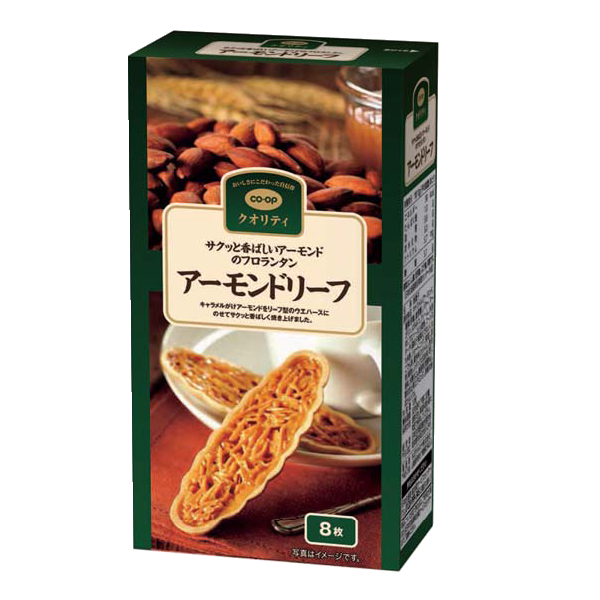
CO·OP Almond Florentin
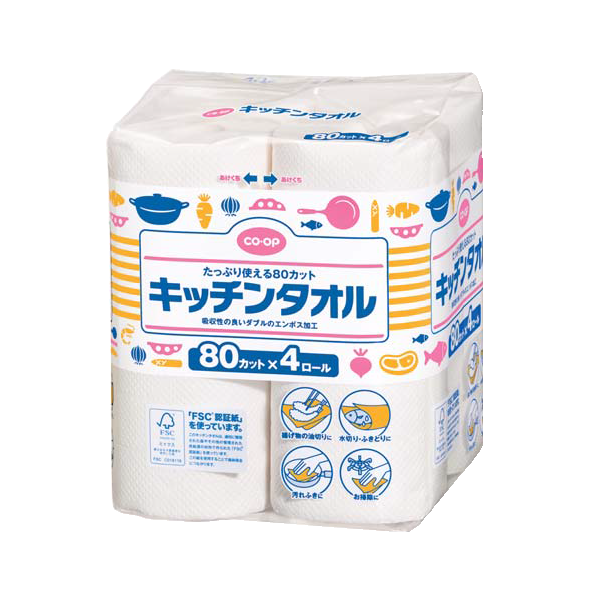
CO·OP Paper Towel
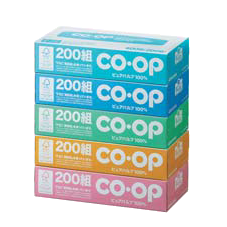
CO·OP Tissue
In 2017, we began to use FSC certified packaging materials (paper boxes and corrugated cardboard). By 2020, we aimed to switch 80% of the total amount of paper or pulp used for CO·OP Brand Products to the use of recycled or FSC certified materials, and we achieved our target of 82.6% in 2019.
The number of certified CO·OP Brand Products and the total sales
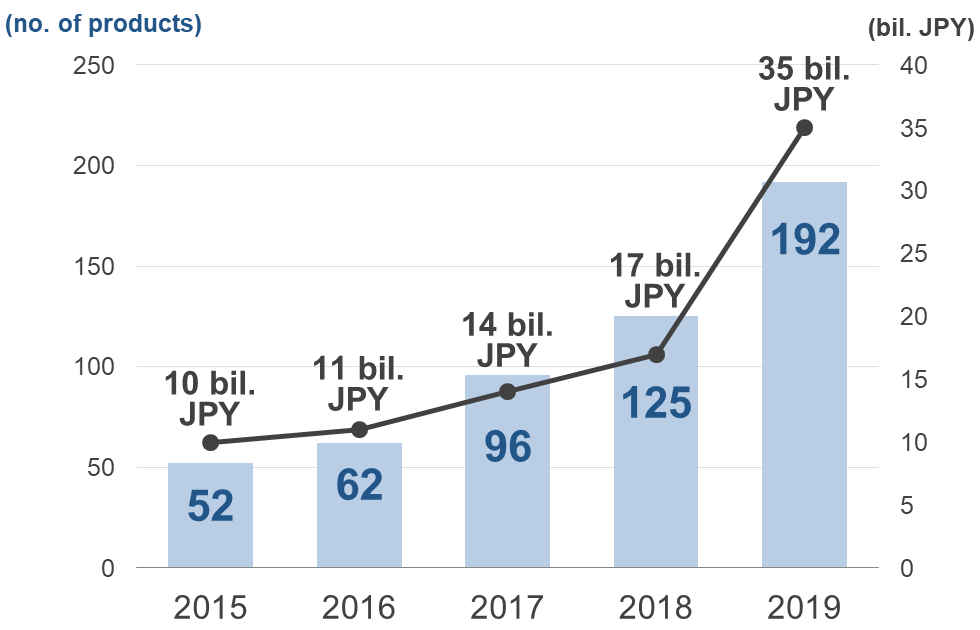
What is FSC®?
FSC® (Forest Stewardship Council) is an independent non-profit organization, which aims to promote responsible forest management over the world. The organization runs an international forest certification system. It creates a mechanism which enables consumers to protect forest resources through the consumption of certified products.
To support sustainable palm oil production and more
We provide support for projects such as sustainable production of small-scale palm farms in West Kalimantan, Indonesia.
CO·OP Brand Detergents use palm oil, like many other detergents. The uncontrolled expansion of farmland for palm oil is a major factor of deforestation. Especially small-scale farmers tend to cut down valuable forests immoderately aiming to expand farms to improve productivity. We donated more than 34 million JPY to an environmental project in Borneo Island, Indonesia and local environmental organizations from 2011 until 2017. Since 2018, we have provided support through the World Wide Fund for Nature (WWF) Japan for projects which promote sustainable production of small-scale palm farms and more in West Kalimantan, Indonesia.
Environmental Donation Campaign through CO·OP Brand Detergents

0.5 yen from the sale amount of each target CO·OP Brand Product is donated.
The 2021 campaign period:
From May 21, 2021 to May 20, 2022
Donation in 2020:
3,262,882 yen
Target CO•OP Brand Products (example)
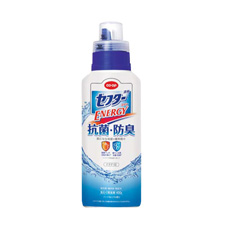
CO·OP Sefter Antibacterial
(detergent)
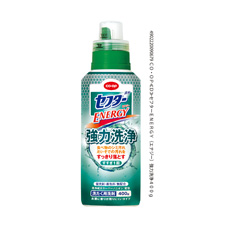
CO·OP Sefter High Power
(detergent)
JCCU joined RSPO in October 2017 with the aim of contributing to the realization of a sustainable and eco-friendly society through the procurement and usage of RSPO certified oil. We are switching palm oil used for all the CO·OP Brand products to B&C (Book & Claim) and MB (Mass Balance) certified palm oil.
You can learn more about RSPO supply chains here.
What is RSPO?
RSPO (Roundtable on Sustainable Palm Oil) is a non-profit organization with the aim of the realization of sustainable production, manufacturing, logistics, and consumption of palm oil. It was established in 2004 with the aim of solving environmental and labor problems in Malaysia and Indonesia caused by the disorderly development of palm oil plantations.
To reduce plastic wastes and utilize limited resources
JCCU and consumer co-ops nationwide promoted reduction of plastic wastes and economical use of natural resources since before plastic wastes became a social issue. In recent years, we are working on reducing plastic wastes by improving packages of CO·OP Brand Products environmentally friendly. By 2030 we aim to reduce the use of plastics as container-packaging materials on a weight basis by 25% (approximately 5,195 tons) compared to 2016, promote utilization of recycled plastics and plant-based plastics, and increase the total use rate by 50%.
Amount of collected materials
by consumer co-ops nationwide
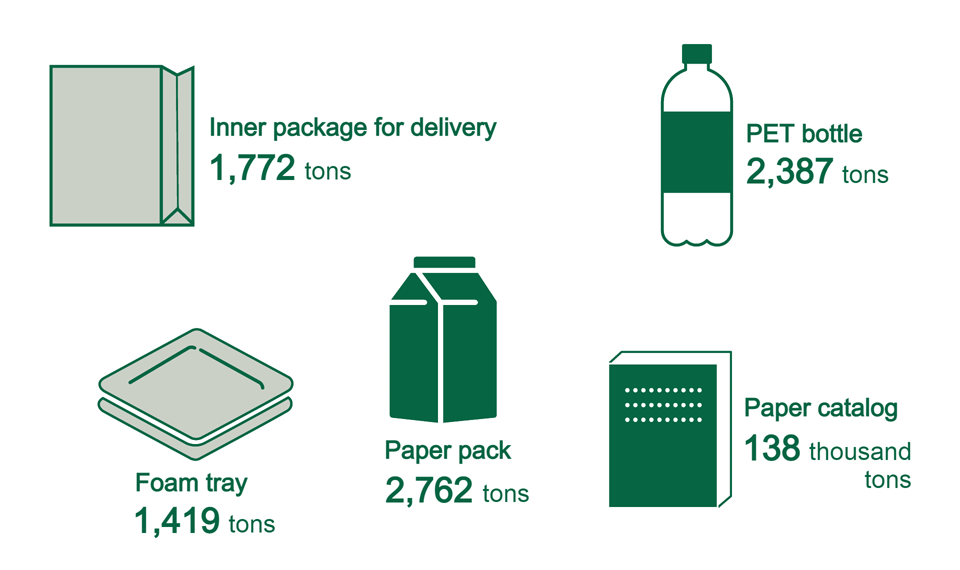
4 goals of CO·OP Brand Products
 Make packaging materials simpler, thinner and smaller |
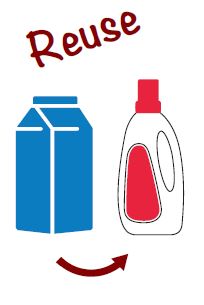 Produce wide variety of refillable products |
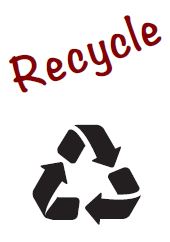 Reprocess recyclable materials |
 Promote the use of plant-based plastic |
Plastic reduction in CO·OP Brand Products (examples)
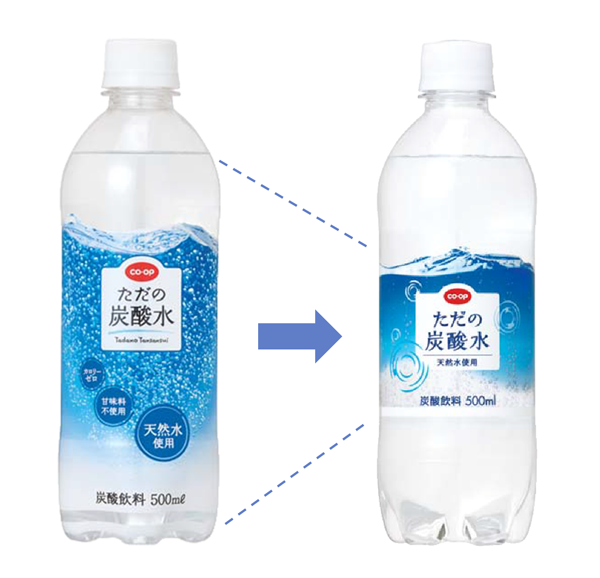
CO·OP Carbonated Water
Introduction of half labels for plastic bottles
Expected to reduce about 18 tons of
plastic
(from January 2020 to January 2021)
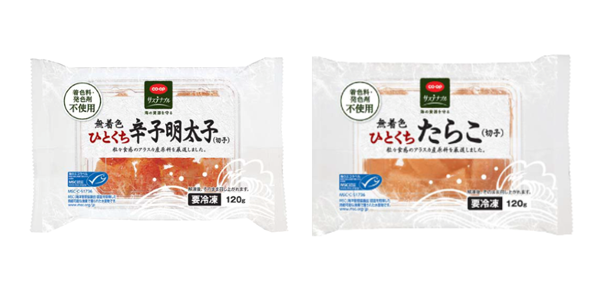
CO·OP Seasoned and Salted Cod Roes
Partial material change to recycled PET
Expected to reduce about 30 tons of petroleum-based plastic
(from April 2019 to March 2020)
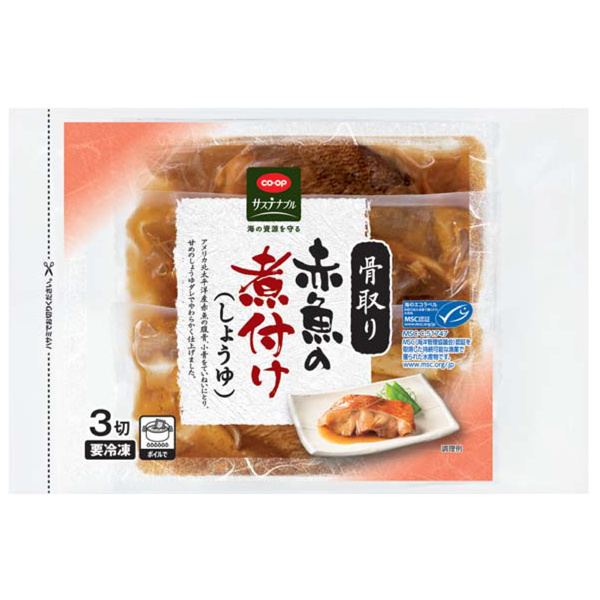
CO·OP Boneless
Boiled Fish
Partial material change to plant-based plastic
17% of package material changed to plant-based PET
